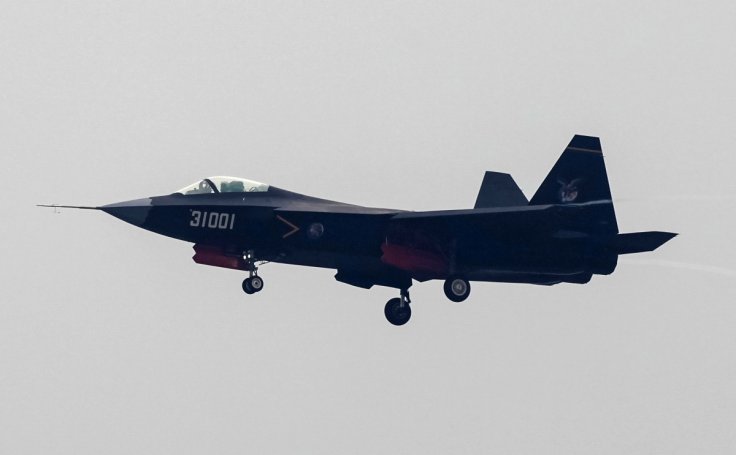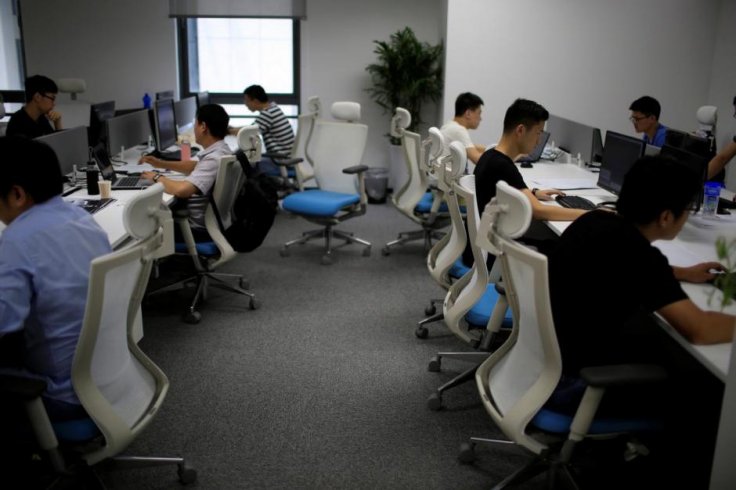The Chinese aviation industry has seen significant growth over the last decade in the form of innovative aviation technology being introduced at various levels which has enabled China to create a competitive aviation industry that is able to challenge western products or find potential markets in developing countries.
Reaching this level of proficiency in the aviation sector has not been easy for China as it has depended significantly on technology acquisition through discrete and unethical channels which has also impacted the image and credibility of Chinese companies and experts operating abroad.
The process of acquisition of technology and knowledge from different parts of the world has not only led to detention and charges filed against several Chinese nationals involved in such procurements, but has also made western companies cautious in dealing with Chinese enterprises.

Two-Pronged Strategy
The Chinese state nevertheless continues to pursue this approach towards tech acquisition in spite of the aggressive covert acquisition process having bruised China's image at the international level. The Chinese communist party continues to encourage large scale movement of Chinese students, specialists, and experts to join prominent institutions and companies abroad which could cater to the country's requirements primarily aimed at facilitating technology and knowledge enhancement.
China has been pursuing a two-pronged strategy in acquiring sensitive technologies. While it promotes talented students and technical experts from various PLA linked establishments to join prominent international institutions on scholarships or contracts to either study or undertake research, it also attempts to acquire companies abroad involved in manufacturing critical products and space technology through direct funding of such institutions wherever possible. In such cases, the Chinese manage to benefit the most as they get the necessary space to extract maximum benefit from the arrangement.
Considering access to sensitive technology is difficult and challenging due to the confidentiality factor involved therein, the only way such technology can be acquired is through stealing. While not spelling it out, the message is very clear that Chinese nationals are left to resorting to any means to acquire critical technology from abroad and are rewarded depending on the risks involved in the process.

In the latest incident of economic espionage, the US Justice Department convicted on November 5, a Chinese intelligence officer in US Federal court of economic espionage in an alleged state backed effort to steal technology from US and French aerospace companies. The accused – Xu Yanjun, is an official at the Jiangsu province foreign intelligence office of the MSS, which is the foreign intelligence wing of the Chinese security set up. As per the US Justice Department, the charges carry a maximum of 15 years in prison and a fine of up to $5 mn, while the other charges bring up to 10 years in prison.
Xu was part of a team of 11 Chinese nationals,who were identified in 2018 for being involved in a long term plan to steal technology from the American aviation company GE Aviation and France's Safran group. The two companies were working on a project aimed at enabling technology merger for a high grade engine product which the Chinese targeted.
According to the charges filed against Xu, he had specifically made attempts to steal technology related to GE Aviation's exclusive composite aircraft engine fan, which no other company in the world has been able to duplicate.
Sensitive Technology Acquisition
The Chinese strategy for sensitive technology acquisition through acquisition of foreign companies has been in place since 2005 when China began to aggressively pursue the policy of targeting research based and tech innovation companies in Europe with an eye to acquire them by providing funding or by way of forming joint ventures with them. They even funded some of these institutions in facilitating experiments and research on various topics.
The "Made in China 2025" initiative by China provided the perfect alibi for making such moves.
Between 2016-18, more than 100 German companies were bought by Chinese enterprises, most of which are state-owned. Over a period of time, Chinese companies acquired more than 300 European companies besides setting up joint ventures with a similar number of companies. The Chinese have been gauging the economic curve in European nations and have smartly moved in for investing in companies or acquiring them when a company faces difficulties in sustaining itself due to numerous factors.
Most of these partnerships and buy offs have benefitted China in a significant manner with the Chinese defence and aviation industry gaining significantly by way of transfer of critical technology and knowledge. One can see a parallel growth between the tech acquisition pattern and the modernisation and growth of the Chinese defence industry, especially the aviation and space sectors. The virtual absence of any effective mechanism in the EU system to monitor the kind of technology being transferred in terms of their eventual utility by the Chinese further allowed such activity to take place unhindered.
A classic case of critical tech acquisition by China is the Chinese acquisition of the sensitive Austrian company FACC AG which manufactures composite material for use in the aviation industry. The company has been the primary supplier of such products to Boeing, Airbus, Bombardier and a number of other aviation manufacturers.
In 2009, after consistent efforts China's Xi'an Aircraft Industry (Group) company Ltd became the majority owner of the Austrian aviation supplier FACC AG. This enabled the Chinese company access to critical aviation technology including the sensitive composite material manufactured by the company that lightens the overall weight of an aircraft body several folds. One witnessed significant growth in the Chinese aviation industry soon after, especially 2012 onwards.
However, FACC also learnt that doing business with the Chinese could eventually turn out to be damaging as in 2016 the company suffered an e mail fraud sourced by a Hong Kong-based Chinese which led to a loss of Euro 50 million to the company. The scam known as the "fake president incident" where a top executive of a company ostensibly receives a mail from his superior to transfer certain funds to an outside institution, led to the removal of the then CEO and CFO of FACC Walter Stephan.
In this time and age of stiff challenges that china faces on all fronts from the West and keeping in line with Xi Jinping's policy of building a confident and assertive China, one would see more aggressive means of acquisition of technology by China which could possibly involve more disingenuous means of tech acquisition than already practiced which the gate keepers in most countries might not be aware of or prepared for.
The recognition by the Chinese state of those capable of facilitating technology and knowledge transfer through stealth means with state honours and other benefits remains a crucial factor in building a strong and robust army of such individuals who would continue to innovate and grow in the field of Tech Acquisition through Stealth Means. Regulatory and monitoring authorities world over would have to remain alert to these realities in times to come.









